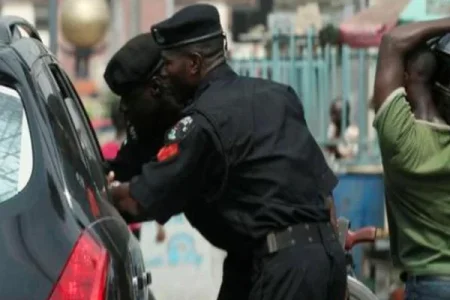
The Nigerian Bureau of Statistics revealed that Nigerians paid approximately N721 billion in bribes to public officials in 2023. The report highlights the prevalence and distribution of bribery across different sectors and underscores the ongoing challenges in combating corruption within the country.
In 2023, Nigerians paid a total of approximately N721 billion in cash bribes to public officials, according to a survey by the National Bureau of Statistics (NBS) in collaboration with the United Nations Office on Drugs and Crime (UNODC), and supported by the MacArthur Foundation and the Kingdom of Denmark. The survey, titled “Corruption in Nigeria: Patterns and Trends,” revealed an average cash bribe of N8,284. Despite the nominal increase in bribe amounts from N5,754 in 2019, the inflation-adjusted value indicates a 29% decrease in purchasing power.
The report highlights that bribes were most commonly paid in public officials' offices (35%) and on the streets (36%), with lesser occurrences at the respondents' homes (11%) and in public buildings (7%). On average, each bribe payer gave 5.1 bribes in 2023, a slight decrease from 5.4 in 2019. In total, around 87 million bribes were paid in 2023, equating to an average of 0.8 bribes per adult.
Bribery incidents were more frequent in rural areas, with an average of 5.8 bribes per payer compared to 4.5 in urban areas. The survey found that 27% of Nigerians who interacted with public officials in the previous year paid bribes, a minor decrease from 29% in 2019. When including refused bribe requests, 34% of all interactions involved bribery.
Encouragingly, 70% of Nigerians refused to pay bribes at least once in 2023, with the highest refusal rate in the North-west at 76%. The report notes a decline in the acceptance of bribery and fewer negative repercussions for refusing bribes. The survey emphasizes the need for the government to focus anti-corruption efforts on public officials most frequently interacting with citizens, such as doctors, nurses, public utility officers, police officers, and teachers.




![[VIDEO] Ghanaian 'Prophet' Ebo Noah Completes Ark, Reverses 3-Year Flood Prediction After Panic](/data/attachments/226/226542-d943439c325e57a04b46a3afd2eb2d71.jpg?hash=EySXq1Fuj0)